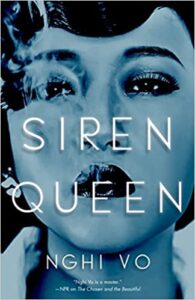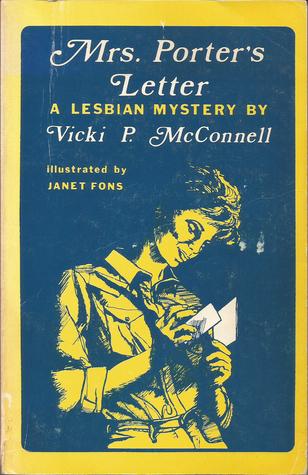Amazon Affiliate Link | Bookshop.org Affiliate Link
In Siren Queen, Nghi Vo brings to old Hollywood a fascinating premise: What if the magic of the silver screen was actually magic? What if the studio system literally owned everything, from looks to talent to one’s very name? Nghi Vo spins out a shadowy, dangerous world filled with fey magic and dangerous deals, where every movie is a chance at literal immortality or complete destruction. It’s lushly imagined, a fully-fleshed world full of dark corners and terrible consequences, and I loved every page of it. Nghi Vo delivers on magic, glamor, and the desperate underground queer love of the era in a thrilling journey where every gift comes at a terrible price.
Luli knows the dangers of the Hollywood Studios, but the lure of the silver screen is in her blood from the moment she sees her first picture and she’ll do whatever she must to become a star. She also knows that a Chinese American girl from a poor neighborhood has even fewer avenues to stardom than most of the hopefuls that swan through the studios. Through cunning, a little bit of knowledge, and luck, Luli claws her way into a chance with a studio and lays out her terms. She won’t play maids, she won’t talk funny, and she won’t play a fainting flower for every leading man to discard for someone whiter and blonder. Her refusal to back down makes the power that runs the studios furious, but Luli is determined to hold onto what she can, even as she’s forced to concede her name, her background, even her relationships. If she won’t play a maid, and they won’t let her play a leading lady, Luli finds the role left to her is monster, and it’s up to her to embrace it.
What I loved most about this book was the glamour and scandal of Pre-Code Hollywood is enhanced but not overshadowed by the mystical. The Hunt may ride once a year, but in the meantime, everyone is in fierce competition for access to the best scripts, the best roles, and the best connections. Luli goes into the dangers with her eyes wide open, but the lure of becoming a star is too much for her to resist. Luli also grapples with the limits the studios impose on her versus the importance of being seen as a Chinese American star. It also reveals the thriving but underground queer scene of the era. While the studios literally matchmake and arrange marriages for their stars for maximum marketing potential, Luli discovers the trick of navigating between a public persona and private relationships through a series of girlfriends, underground clubs, and meeting with other queer actors. Luli’s queer relationships are both shaped by the omnipresent pressure of the studio system she lives in and one of the major parts of her life that are hers and not for publicity, and as she realizes she has more to lose, she also learns what she is willing to compromise about herself.
In conclusion, I loved this detailed, gorgeous trip through Pre-Code Hollywood, where both the beauty and the danger are greater than ever. Luli is a ruthless and yet complex main character, existing at the nexus of a number of different worlds, and she kicks and struggles to have the life she wants. Any one of Hollywood with magic, a Chinese American actress struggling to make a name for herself, or undercover queer culture in Hollywood would be interesting, and Nghi Vo masterfully mixes them all together for one unforgettable book. I definitely do not regret picking this one up.



